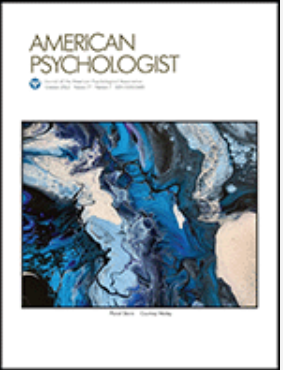法庭之友简报和评论的准确性:回复Cobb等人(2025),Dvoskin等人(2025)和koovera(2025)。
IF 12.3
1区 心理学
Q1 PSYCHOLOGY, MULTIDISCIPLINARY
引用次数: 0
摘要
在这篇对评论的回复中,我们认为法庭之友简报应该确定何时发现是基于模拟研究的,澄清我们并没有提出美国心理协会的法庭之友简报必须是完美的,并反驳我们的编码不透明或遵循法律(即蓝皮书)风格可以使心理学家免于遵循美国心理协会标准的观点。我们同意Cobb等人(2025)的评论,即引文不准确是对我们学科完整性的威胁,可以而且应该减少。(PsycInfo Database Record (c) 2025 APA,版权所有)。本文章由计算机程序翻译,如有差异,请以英文原文为准。
Accuracy in amicus curiae briefs and in commentaries: Reply to Cobb et al. (2025), Dvoskin et al. (2025), and Kovera (2025).
In this reply to commentaries, we argue that amicus briefs should identify when findings are based on simulation studies, clarify that we did not propose that American Psychological Association amicus briefs must be perfect, and refute notions that our coding was opaque or that following legal (i.e., Bluebook) style absolves psychologists from following American Psychological Association standards. We agree with the commentary by Cobb et al. (2025) that citation inaccuracies are a threat to our discipline's integrity that can, and should, be reduced. (PsycInfo Database Record (c) 2025 APA, all rights reserved).
求助全文
通过发布文献求助,成功后即可免费获取论文全文。
去求助
来源期刊

American Psychologist
PSYCHOLOGY, MULTIDISCIPLINARY-
CiteScore
18.50
自引率
1.20%
发文量
145
期刊介绍:
Established in 1946, American Psychologist® is the flagship peer-reviewed scholarly journal of the American Psychological Association. It publishes high-impact papers of broad interest, including empirical reports, meta-analyses, and scholarly reviews, covering psychological science, practice, education, and policy. Articles often address issues of national and international significance within the field of psychology and its relationship to society. Published in an accessible style, contributions in American Psychologist are designed to be understood by both psychologists and the general public.
 求助内容:
求助内容: 应助结果提醒方式:
应助结果提醒方式:


